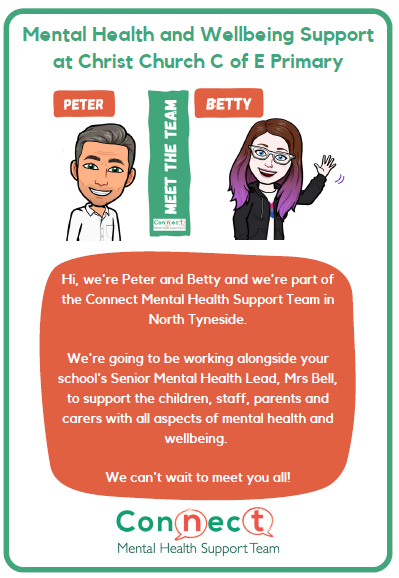Introduction to mental health

Did you know that one in four people will experience a mental health problem at some point in their life?
We all expect to get a cold or sore throat from time to time, but when it comes to the way we feel emotionally, it can be hard to recognise or admit that we’re not feeling 100%.
Mental health problems are common and can happen to anybody, regardless of age, race, gender or social background. We all have times when we feel down, stressed or frightened. Mental health is just like physical health. It can be good or bad, lead to problems that last for a few weeks or ones that need to be managed over a lifetime.
People are often anxious about discussing their mental health, worried about what people might think, or unaware of who to turn to. Most of us would simply not feel as comfortable telling friends and family about having a mental health problem, as they would saying they had a physical illness.
The newly launched national ‘Every Mind Matters’ campaign focuses on the things that people can do to protect and improve their mental health and also highlights the importance of looking out for others.
The campaign highlights, that at times we can all experience things such as low mood, stress, anxiety or sleep problems.
Mental health and young people
While it’s important to say that most young people in North Tyneside have good mental health and are able to cope with challenges or adversity mental health problems affect about 1 in 8 children and young people. They include depression, anxiety and conduct disorder, and are often a direct response to what is happening in their lives.
With good mental health, children and young people do better in every way. They enjoy their childhoods, are able to deal with stress and difficult times, are able to learn better, do better at school, navigate the online world they grew up in so they benefit from it and enjoy friendships and new experiences. This is why it is so important to look after your mental health.
If you are worried about your child’s mental health you can visit the Young Minds website.
Young People living in North Tyneside aged 11-18 can also access Kooth.com for support on any issues or concerns they may have. Kooth provides an anonymous and confidential service using a mix of counselling, support and advice on a drop in, out of hours and structured sessions.
Mental health and adults

Mental health problems range from the worries we all experience as part of everyday life to serious long-term conditions. The majority of people who experience mental health problems can get over them or learn to live with them, especially if they get help early on.
Living with a mental health problem can often have an impact on day to day life, making things that others might not think about a bit more difficult. If you think you may have a mental health problem here are some of the common early signs:
- losing interest in activities and tasks that were previously enjoyed
- poor performance at school, college or work
- mood swings that are very extreme or fast and out of character for you
- self-harming behaviour, such as cutting yourself
- changes in eating habits and/or appetite: over-eating, bingeing, not eating
- loss of, or increase in, sexual desire
- sleep problems
- increased anxiety, looking or feeling ‘jumpy’ or agitated, sometimes including panic attacks
- feeling tired and lacking energy
- isolating yourself, socialising less; spending too much time in bed
- wanting to go out a lot more, needing very little sleep, feeling highly energetic, creative and sociable, making new friends rapidly, trusting strangers or spending excessively – this may signal that you are becoming ‘high’
- Hearing and seeing things that others don’t.
- Other differences in perception; for example, mistakenly believing that someone is trying to harm you, is laughing at you, or trying to take over your body.
Local information and support
You should see your GP if you feel like your mental health is affecting your daily life, relationships, work or causing you distress.
However the good news is that just as you can do things to improve your physical health there is more and more research showing us how certain things we do can help our moods, reduce the risk of depression, strengthen relationships, keep us healthy and even add years to our lives!
Could you follow the 5 ways to wellbeing and improve your mental health?
Connect with the people around you – close relationships with friends and family can add up to 7 years to our lives! Have a conversation, pass the time of day, make time for a chat or a cuppa with a neighbour.
Be active – Discover a physical activity you enjoy and suits your level of mobility and fitness, because exercise makes you feel good and can improve your mood. Visit Active North Tyneside to find out more.
Take notice – Savour the moment, whether walking to work, around a local park, eating your lunch or talking to friends, will help you appreciate what matters to you. Find your nearest park here.
Keep learning – Enjoy achieving a new challenge and boost your confidence by trying something new or rediscovering an old interest. Find out more about Adult Learning.
Give – Join a volunteer group or just do something nice for someone – it can be incredibly rewarding and a good way to connect. Voda provide support, advice and training to volunteers.
Local resources
SIGN North Tyneside brings together information about activities, events and services for residents living within North Tyneside. It can help you find out what’s happening in your local area. You can also find out about support and equipment for your home, activities within your community, and services to meet your needs.
North Tyneside Talking Therapies provides psychological assessment and treatment to adults who live in North Tyneside who are suffering from common mental health problems.
Young People living in North Tyneside aged 11-18 can also access Kooth.com for support on any issues or concerns they may have.
North Tyneside Child and Adolescent Mental Health Service (CAMHS) aims to provide help to children and young people up to 18 years old, and their families, who are having moderate to severe emotional, behavioural, developmental, psychological or relationship difficulties. Referral is through a range of professionals including GPs, social workers and public health nurses in schools.
First Contact Clinical provides a Social Prescribing Service in North Tyneside which can help people with different social, emotional or practical needs to find the right support and improve their health and wellbeing. A team of Link Workers will take time to explore what’s important to individuals and support them to identify issues and challenges they would like to address. This may involve introducing them to services, groups or activities in their local community. To access the service a person must be a resident of North Tyneside or be registered with a North Tyneside GP Practice and be 18 years of age or over. You can make a referral via [email protected] or by calling 0191 4324829, or get in touch by emailing [email protected]
North Tyneside Libraries provide Reading Well Books on Prescription, a collection of titles for adults containing information and step-by-step self-help techniques for managing a variety of common mental heath conditions. The books have all been endorsed by health professionals and cover issues such as stress, anxiety, depression, panic, eating disorders and low self-esteem. Libraries also provide similar books to help young people with their mental health issues. These are also endorsed by experts and contain advice and information on issues like anxiety, stress and OCD and difficult experiences like bullying and exams. All these books are available to borrow free of charge from North Tyneside Libraries. For details of where to find them please see using our libraries.
North Tyneside Citizens Advice Bureau offers free, confidential, impartial and independent advice on a wide range of subjects.
Find out more about health and wellbeing here.
National information and support
You can find out more about how to look after your mental health on the NHS Choices website.
You can also read more about common mental health concerns and when to seek help as well as downloading some free audio guides to boost your mood that may help.
Young Minds – the UK’s leading charity committed to improving the emotional wellbeing and mental health of children and young people.
Samaritans – email [email protected] or call 08457 90 90 90 (both 24 hour services).
